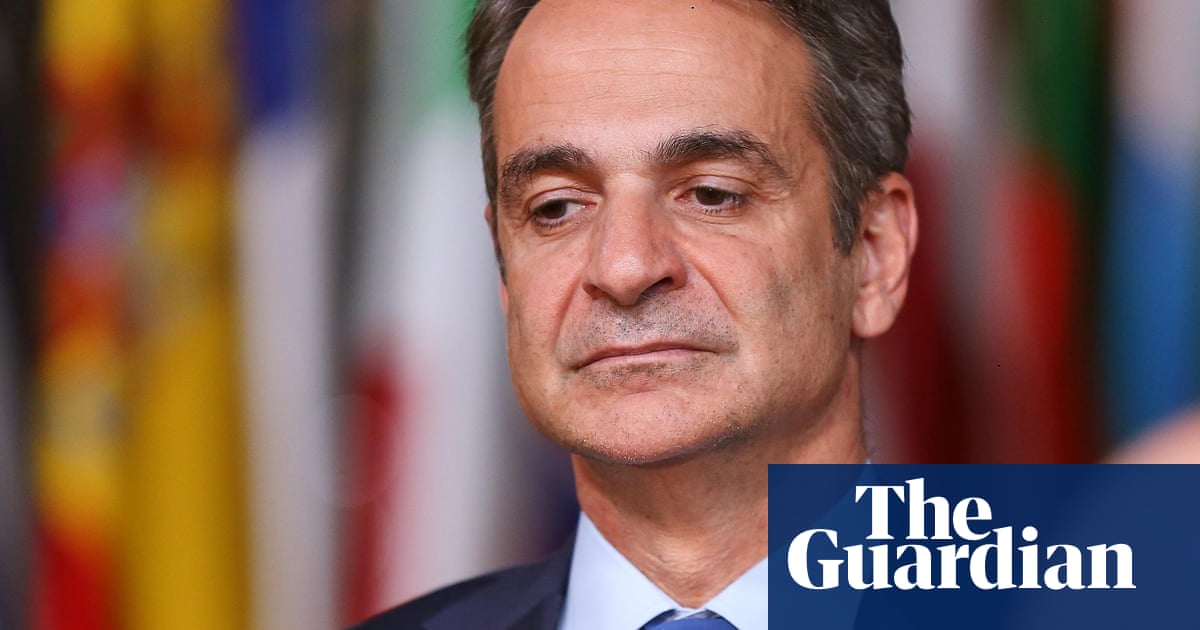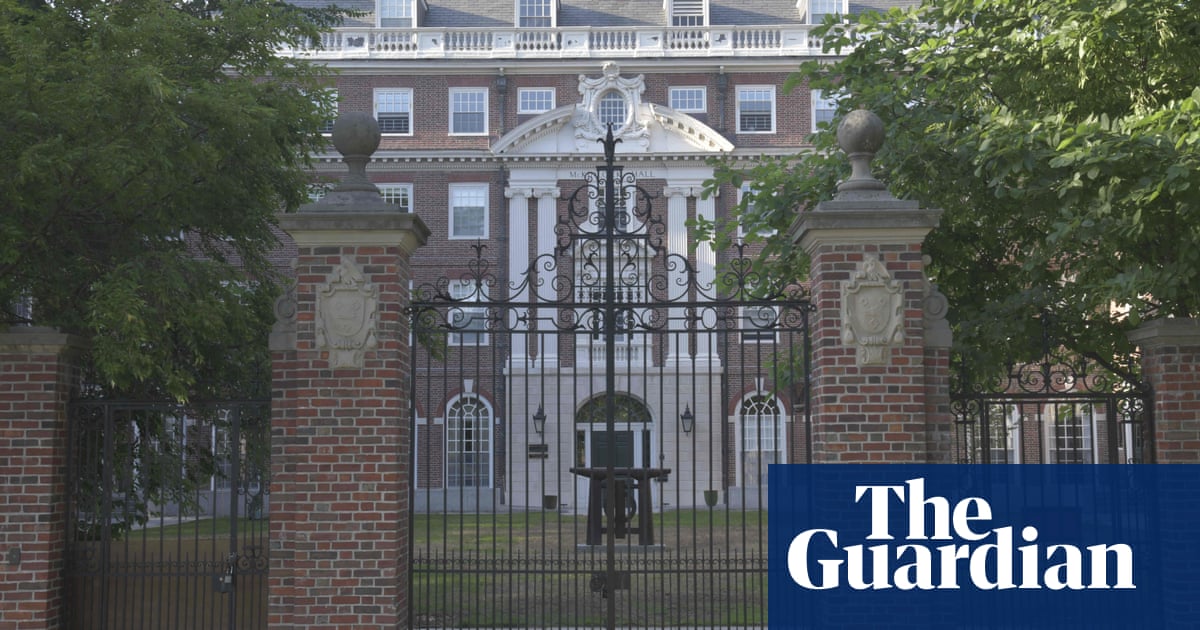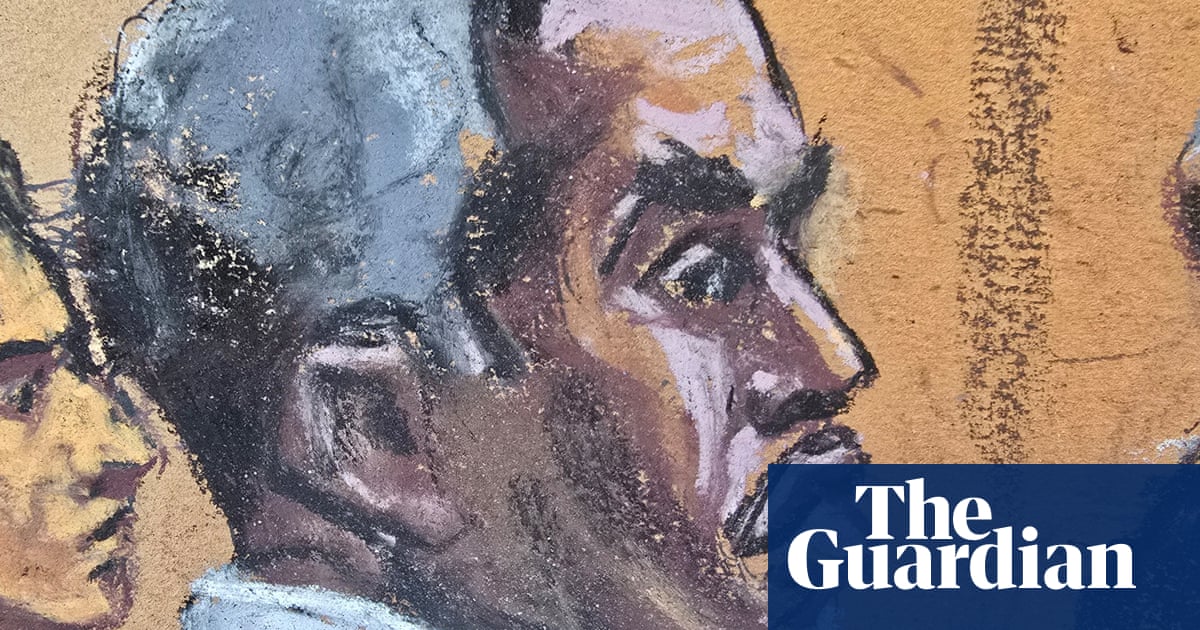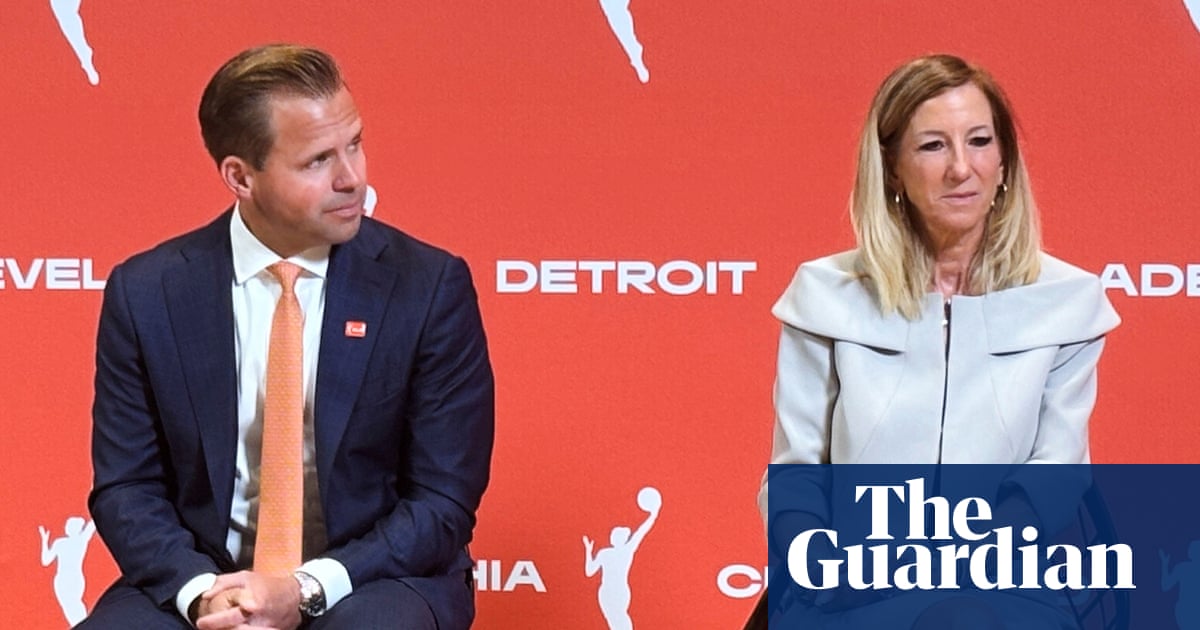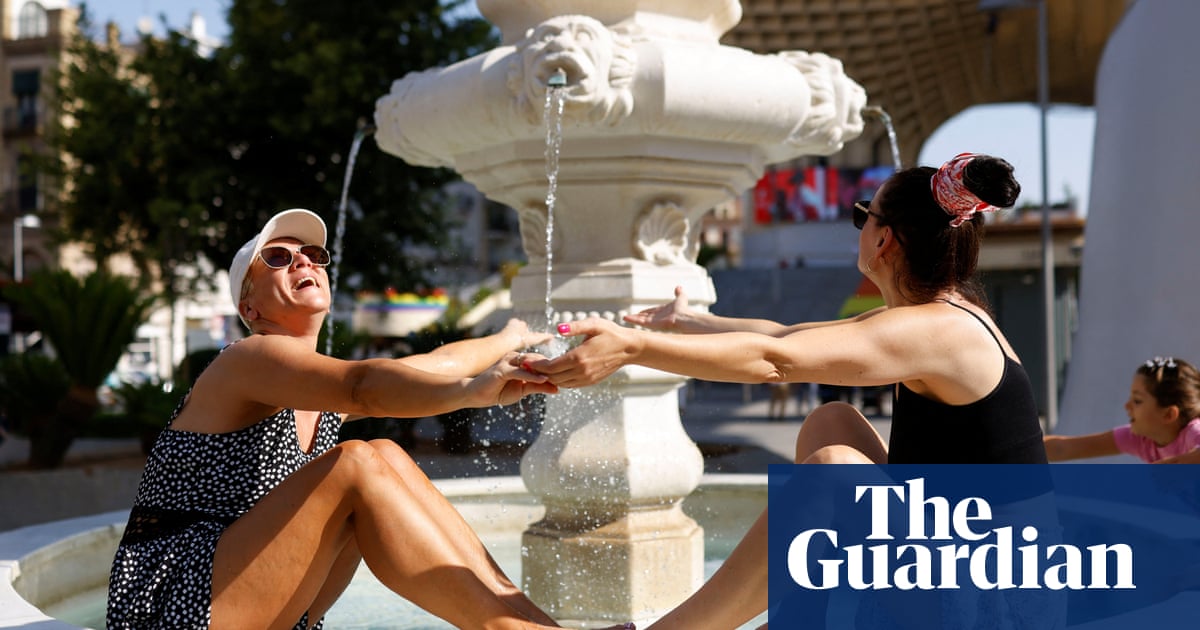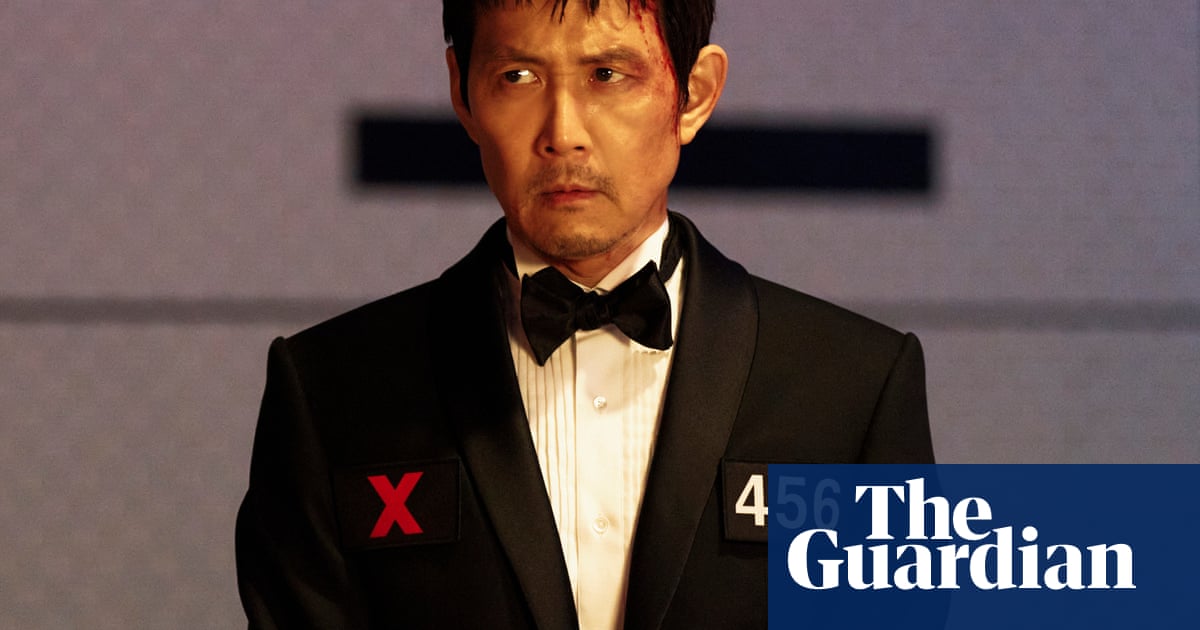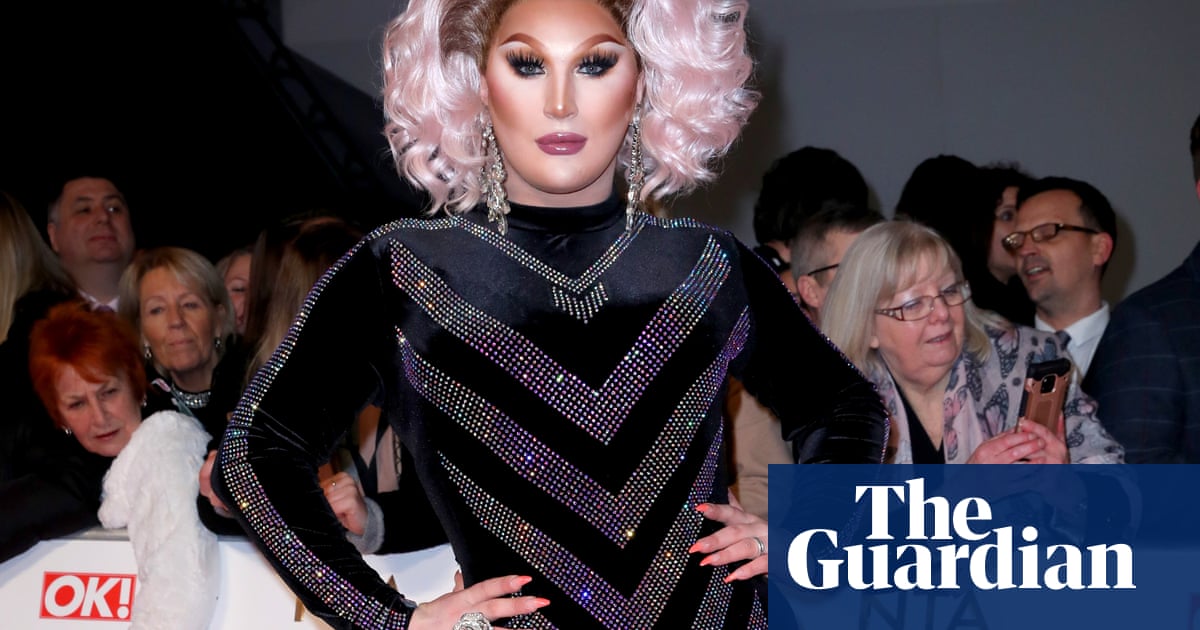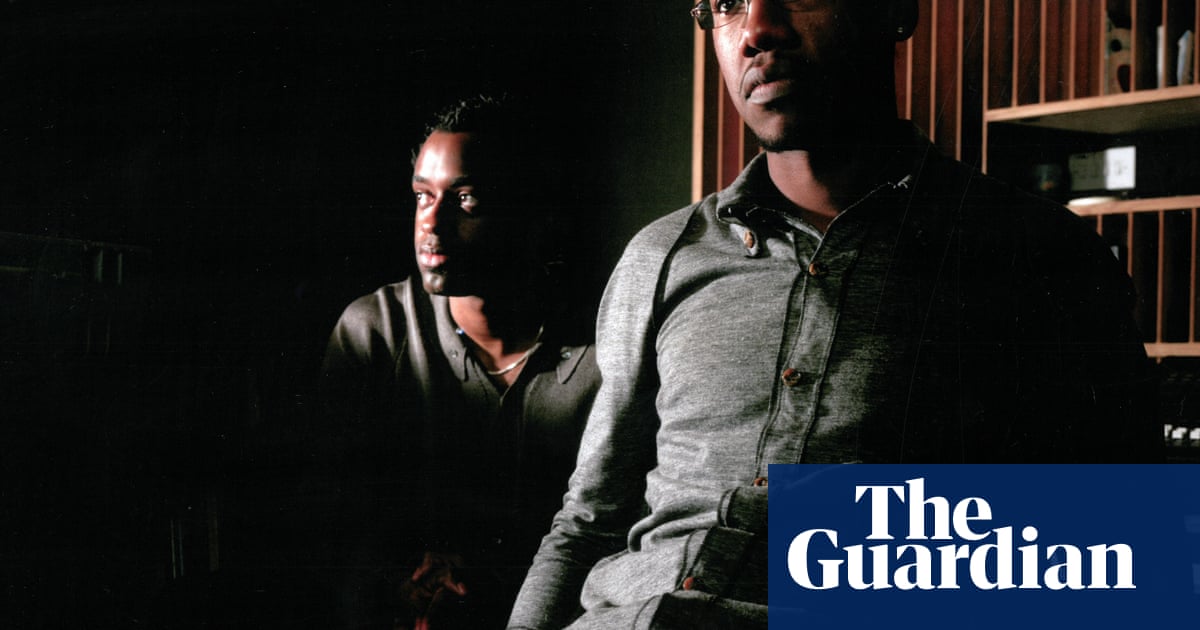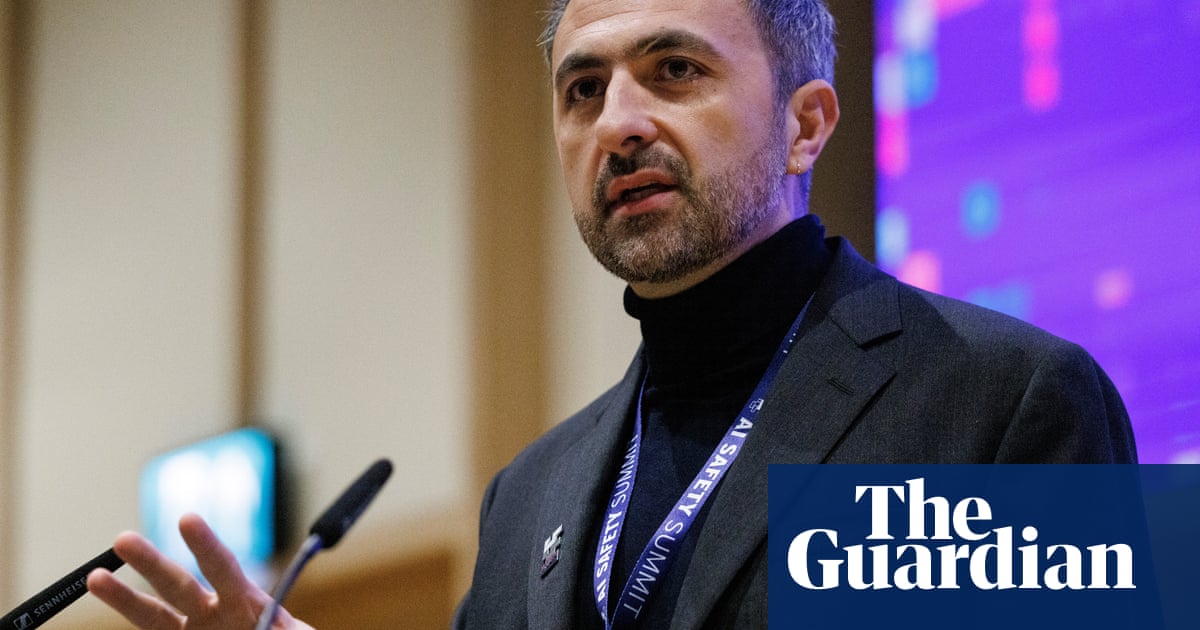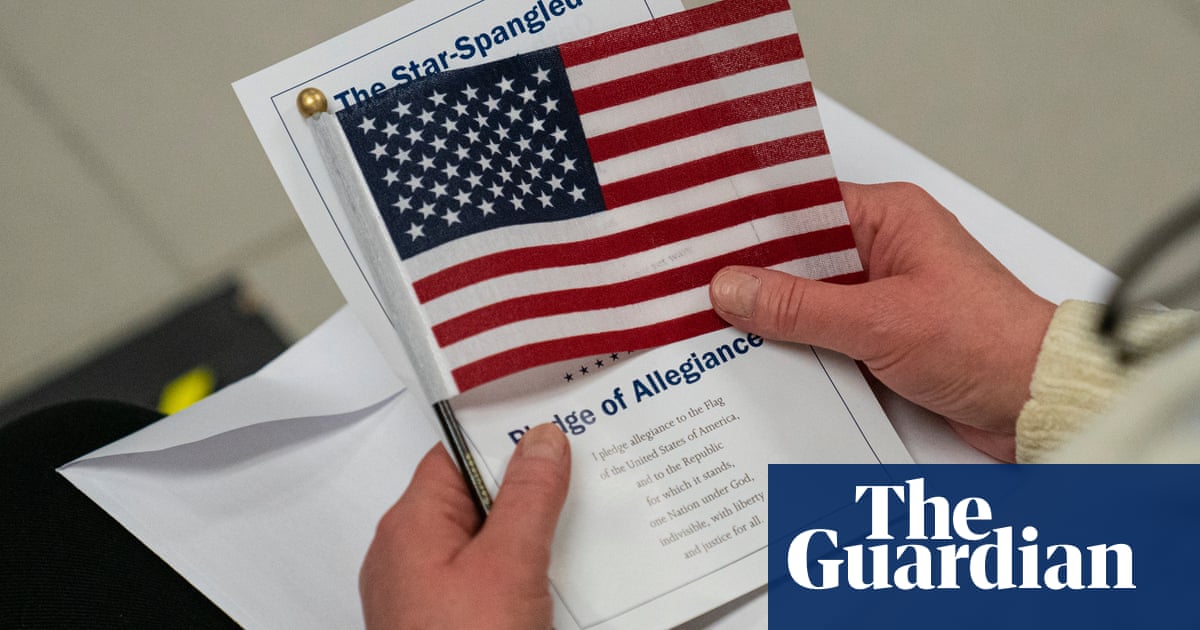On a warm spring day relatives gathered to say goodbye to Viktor Boiko and his wife, Olha. Their open coffins were laid out next to one other. Viktor wore his best suit. Olha was in a flowery blouse, with carnations heaped around her slippered feet. A priest sang prayers. Gravediggers lowered the couple into the ground, and shovelled earth on top. It landed with a percussive thud.
“Give me a weapon. Any weapon. I want to kill those butchers in Moscow,” said Viktor’s brother-in-law Anatolii Prykhodko, as his wife stood sobbing next to him. “They have murdered so many people. Adults, kids, peaceful citizens. If you lose a house or a car in a war, you can get it back. If you lose a person, a loved one, they are gone for ever.”
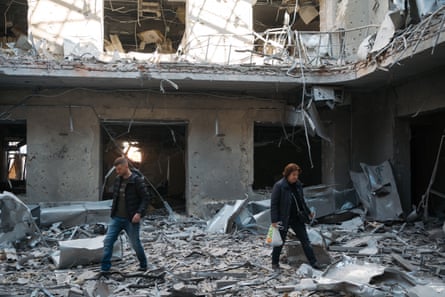
On Sunday morning, the Boikos were on their way to church to celebrate Palm Sunday. Like most hard-up pensioners, they went by public transport. A ride costs eight hryvnia (15p). Their bus, No 62, was driving down Petropavlivska Street in the centre of Sumy, north-eastern Ukraine. On either side were elegant buildings belonging to Sumy state university. It was 10.23am.
A Russian Iskander missile carrying cluster munitions plunged down from the sky, exploding next to the bus. Shrapnel engulfed the Boikos, other passengers and people in the street strolling past cafes and shops. The couple died instantly. Another missile hit the university’s conference centre, 200 metres away, punching through its glass atrium and balcony.
Rescuers saw an apocalyptic scene. Bodies lay sprawled on the ground, cars burned, smoke billowed. The blast ripped a hole in the university’s economics and business department. It blew out the windows and wooden doors from the 19th-century institute of applied physics across the road. Fragments flew through the institute’s garden, shredding tulips and roses. The spot was a popular backdrop for wedding photos.
On Tuesday, people visited the scene to lay flowers as firefighters perched on a shattered roof. “It was Palm Sunday, a holiday, a day off,” one Sumy resident, Tetyana, explained. “The weather had recently warmed up and people were on their way to church. We have a tradition in Ukraine that we buy willow branches.” She added: “This is a huge sorrow for the whole city. We are grieving. In my opinion this isn’t an act of war. It’s sheer terrorism.”
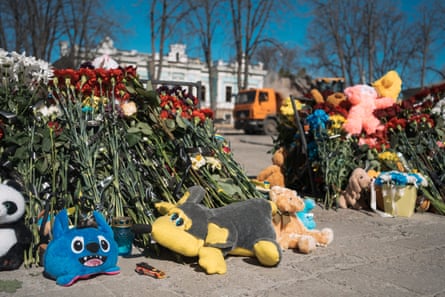
Among the dead were two children. One was 11-year-old Maksym Martynenko, who died with his parents, Mykola and Natalia. There were cuddly toys at the spot where he perished, including a bear and a hippo. Someone had left a plastic football with “To Max” written on it. The organist at Sumy’s philharmonic concert hall, Olena Kohut, was killed nearby on her way to a rehearsal. Other victims were students, teachers, a notary and the bus driver.
Sumy is situated a mere 16 miles (25km) from the Russian border. It is home to soldiers and civilians. Residents are used to frequent drone and rocket attacks, and to the constant wail of air raid sirens. Sunday’s double-tap strike, though, was terrible. It was the most egregious Russian attack this year, leaving 35 dead and 129 injured. Eleven people remain in a critical condition. There are 15 wounded children.
Asked for his reaction, Donald Trump appeared to downplay the latest Russian atrocity, calling it “a mistake”. Subsequently, he blamed Volodymyr Zelenskyy, the Ukrainian president, and Joe Biden, the previous US president, by falsely claiming they “started” the war with Russia. Serhii Khvostov, the head of the damaged conference centre in Sumy, was unimpressed. “Trump is a mistake. This is an act by stupid and angry Russians. There’s no logic to it,” he said. “It’s easy to look away. But the world has to understand what is happening here.”
Khvostov gave a tour of the ruined building. The missile blew a four-metre hole in the ground floor and careened into the basement, a community theatre space. A children’s show was due to take place there at 11am, shortly before the attack. Jagged pieces from the Iskander missile landed amid prepared sandwiches, costumes and a collection of puppets, including a dragon and Kermit the Frog. Large holes dinted the venue’s black walls.
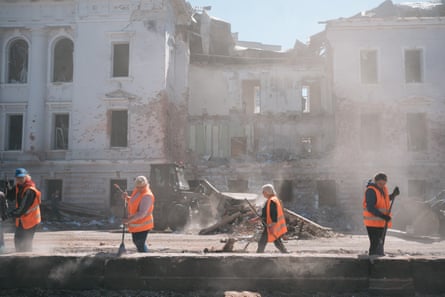
“It was a miracle nobody was killed,” Khvostov said. After hearing the explosion, he called the centre’s elderly security guard. There was no answer, so he ran to the building. The guard was concussed but OK, and had managed to drag one of Khvostov’s colleagues from the administration’s office, pushing him out of a broken window. A cleaner also survived. No one else was inside. Several people drinking coffee from a mobile kiosk were injured.
On Tuesday, staff swept away glass, ducking to avoid dangling bits of ceiling. Khvostov’s office was a mess. There were broken computers and desks and a toppled-over safe. “We can’t find the key,” he said. “It’s too early to say if this place can be rebuilt. I hope so.” Outside, a JCB digger scooped piles of debris into a lorry. A tow truck removed a damaged car. Its owner, Tetyana, said: “My windows blew in and my neighbour was hurt. I gave her a tourniquet.”
The theatre’s founder and director, Volodymyr Niankin, said one of his friends was planning to leave Sumy due to the attack. Niankin said he himself would stay, to take care of his ailing grandmother. Of Trump and Vladimir Putin, the Russian president, he said: “I think they are stupid old men. They are representatives of a past cold war generation, when it was just the US and the USSR. It seems their plan is to divide up the world between them.”
At the institute of applied physics, a clean-up was under way. Volunteers tidied the flowerbeds. The explosion damaged a chandelier in an upstairs lecture room and a charcoal portrait of a Sumy physicist, which had been hanging in a corridor. A whiteboard with an equation on it survived unscathed. Next to the entrance, a Quartz wall clock had stopped at the exact moment of impact: 10.23am and 40 seconds.
Serhii Lebedynskyi, a senior researcher, examined his smashed office with his wife, Yulia. A shelf of physics books was covered in a layer of thick dust. Ornate plasterwork on the ceiling had disappeared. “We were planning to go into town with our small son on Sunday morning. He decided he didn’t want to leave the house. This probably saved us. We heard an enormous bang,” Lebedynskyi said. He added: “For more than 10 years the Russians have behaved like terrorists.”
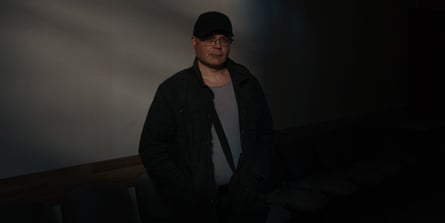
An American volunteer, Karl Ahlgren, said the Russians had known exactly what they were doing when they fired two missiles into a crowded city centre. “What Trump says is atrocious and unconscionable,” he said. “It’s clear he listens to Russian propaganda. I don’t know if it comes from Vladimir Putin or from [Trump’s special envoy] Steve Witkoff. There was no mistake here. The second strike was meant to kill rescuers.”
On Tuesday, Ukraine’s armed forces carried out a form of revenge. The country’s military said it had successfully hit the headquarters of a Russian missile brigade responsible for Sunday’s carnage. “[A base] of the 448th missile brigade of the Russian occupiers was hit, a secondary detonation of ammunition was recorded. The results of the strike are being clarified,” it said in a statement.
Back at Sumy’s cemetery, a gravedigger spoke fondly of Kohut, describing her as a talented and popular organist. “She was my friend. A very democratic person. She treated everyone the same way, whether you were important or not,” Valeriy Rodenko said. Rodenko said he had worked for seven years as a carpenter at the city’s philharmonic concert hall. “I got to know Olena well. She was a wonderful person. A bright spirit,” he said.
He put down his spade and broke down in tears.

 2 months ago
51
2 months ago
51





